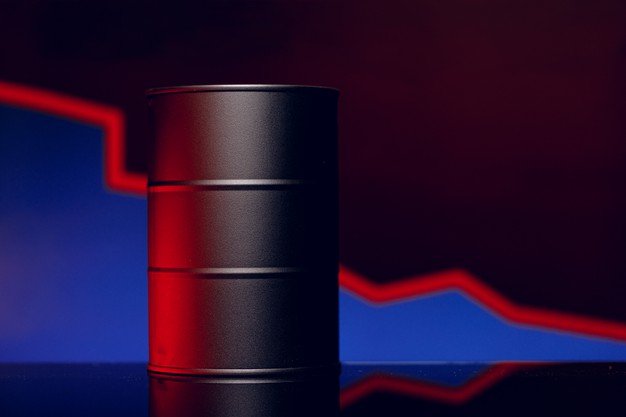A larger-than-expected drop in US oil and gasoline stockpiles reminded investors that oil demand will remain strong even if a global recession is overshadowed by the possibility. Oil prices rebounded from the six-month low they saw the previous day and rose on Wednesday.
Brent crude futures rose 56 cents, or 0.6%, to $92.90 a barrel as of 0415 GMT. West Texas Intermediate (WTI) crude futures rose 62 cents, or 0.7%, to $87.15 a barrel.
Benchmarks were down nearly 3% on Tuesday as weak US housing start data raised concerns about a potential global recession.
The two-week decline in US gasoline inventories reassured investors that demand was elastic and encouraged purchases.
Still, the oil market is expected to remain under pressure with very high volatility due to concerns about a potential global recession.
U.S. crude oil and fuel inventories have fallen in the past week, according to market sources based on Tuesday’s figures from the American Petroleum Institute (API).
Crude oil inventories fell by about 448,000 barrels in the week ending Aug. Gasoline stocks fell by about 4.5 million barrels, while distillate stocks fell by about 759,000 barrels, according to sources.
However, a well-attended survey on Tuesday had showed that crude oil inventories fell by nearly 300,000 barrels last week, and gasoline stocks likely fell by 1.1 million barrels as distillates rose inventories.
Investors also expect clarity in negotiations to revive the 2015 Iran nuclear deal. Analysts said oil supplies could increase if Iran and the US accept a proposal from the European Union to lift sanctions on Iran’s oil exports.
The EU and the US said on Tuesday they were examining Iran’s response to the EU’s “final” proposal to save the 2015 nuclear deal after Tehran urged Washington to show flexibility.
The European Union will stop buying all Russian crude oil delivered by sea from the beginning of December and will ban all Russian refined products two months later, with sanctions imposed over Moscow’s invasion of Ukraine.
Europeans are likely to be more zealous for flexibility, given the supply shortage the continent will face when Russia’s sanctions arrive in December.
Meanwhile, Barclays sees a crude oil surplus in the near term, cutting its Brent price forecasts for 2022 and 2023 by $8 a barrel on Tuesday.
Therefore, it is useful not to overlook the possibility of a large crude oil surplus in the near term due to Russia’s ”probable” moves.

